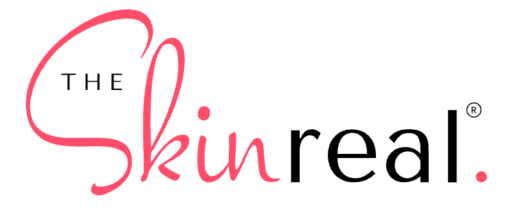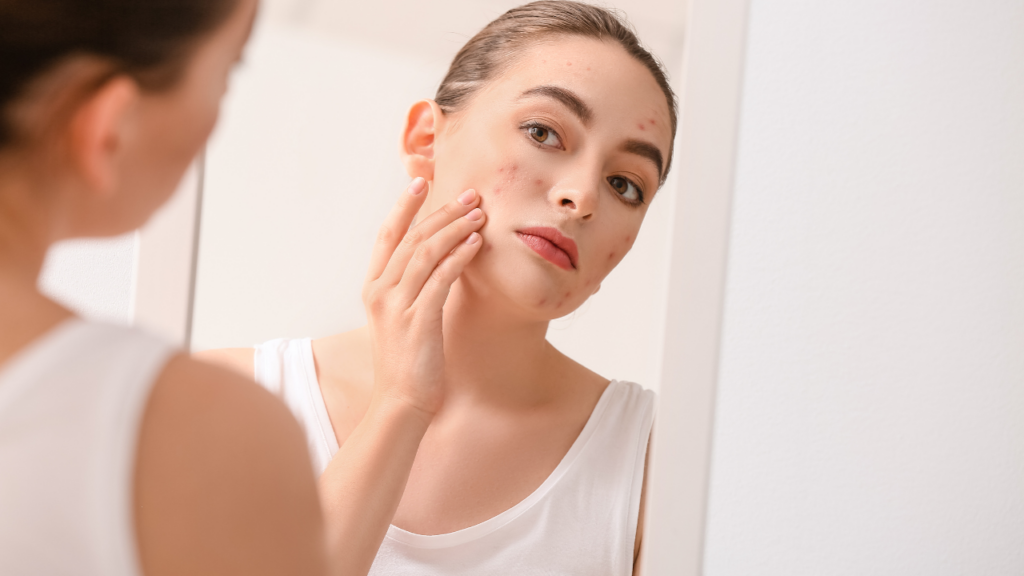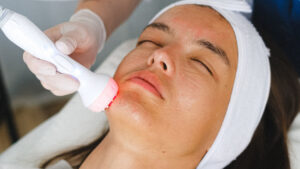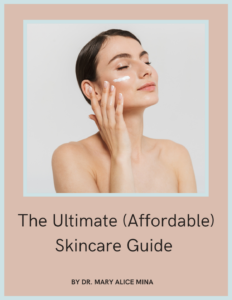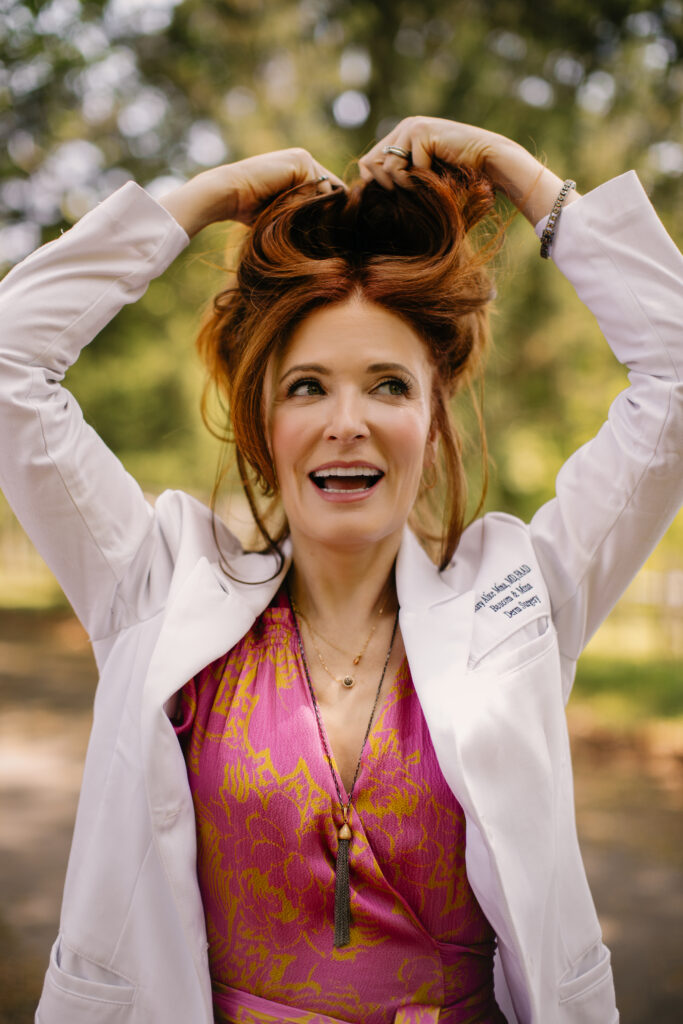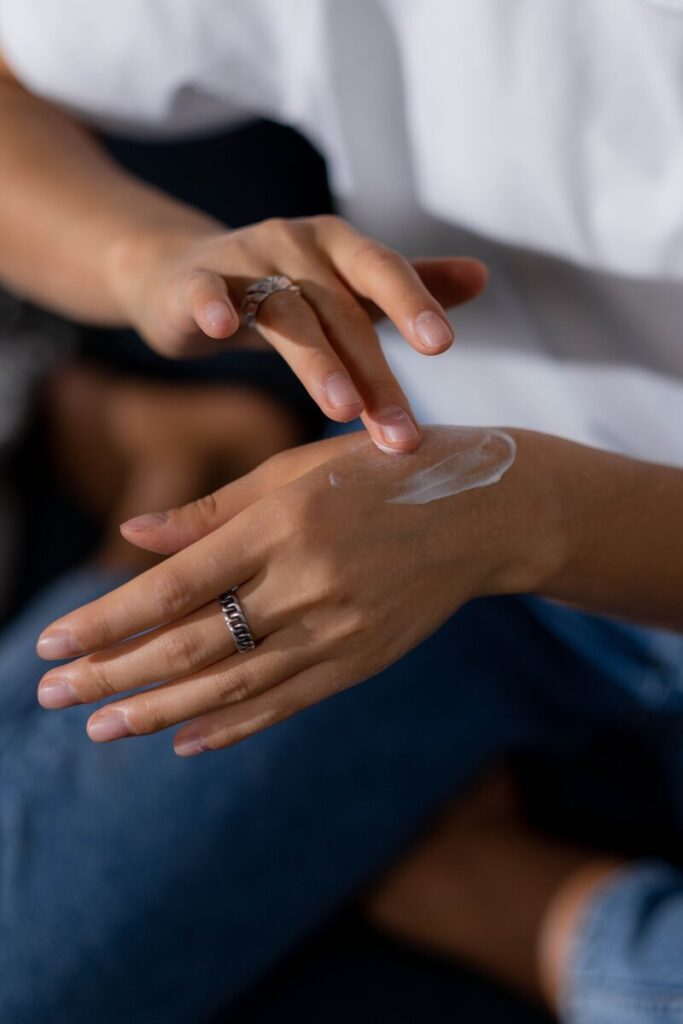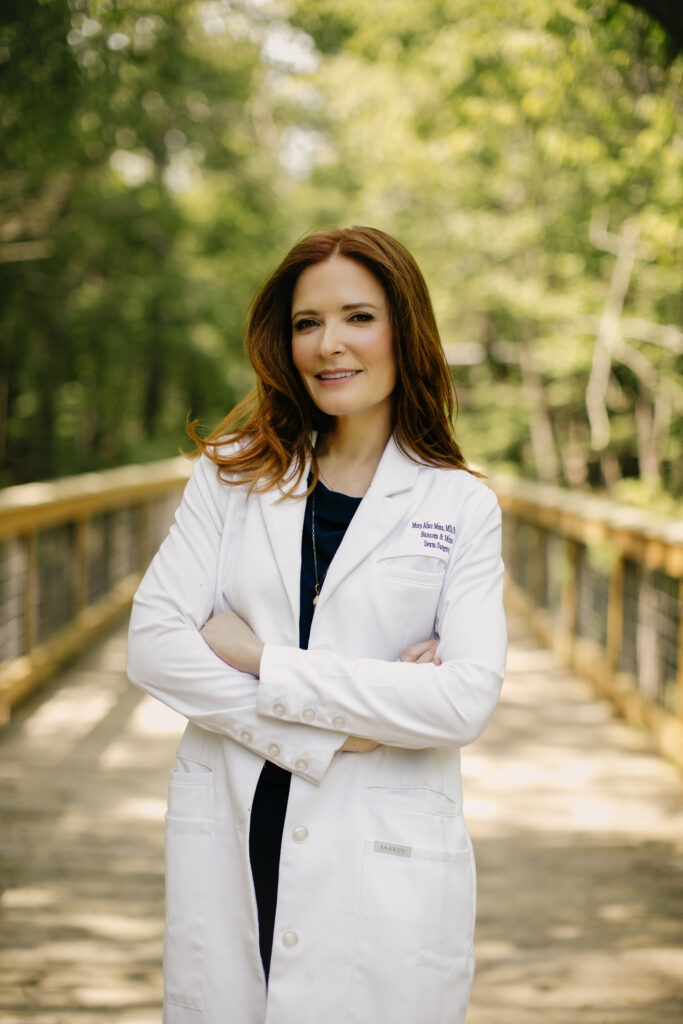Think acne’s just a teenage problem?
Think again! Many women in their 30s, 40s, and even older still deal with breakouts. Yikes! While we often hear about ‘hormonal’ acne showing up along the jawline for adults, in reality, adult acne can pop up all over the face! And guess what? Hormones are usually behind most acne, no matter how old you are. And did you know that acne isn’t just a cosmetic concern. A recent study showed something surprising: when photos of people with clear skin were digitally enhanced to look like they had acne, including severe cases, observers thought they were less smart, less friendly, and less likely to succeed. This shows that acne has a bigger impact than just on the skin; it affects how people are seen and treated. Bottom line, acne is a chronic, inflammatory skin condition that goes beyond skin deep.
Now, let’s take a closer look at why acne happens in women aged 35 and up, how to treat it effectively, and ways to keep it from coming back!
Understanding the Causes of Adult Acne
1) Hormonal Changes:
- Menopause and Perimenopause: Fluctuations in estrogen and progesterone levels during perimenopause and menopause can trigger acne.
- Menstrual Cycle: Hormonal shifts during the menstrual cycle can trigger excess oil production, making the skin more prone to acne at certain times.
- Polycystic Ovary Syndrome (PCOS): Women with PCOS often have higher levels of androgens (male hormones) like testosterone, which can lead to increased oil production and acne.
2) Stress
Elevated cortisol levels can stimulate our oil glands to produce more sebum (oil). Excess oil can clog pores and trap bacteria, leading to an immune response and acne breakouts.
3) Skincare Products
Some skincare products and even hair products contain ingredients that are comedogenic, meaning they can clog pores. These products can worsen existing acne or even trigger new breakouts!
4) Diet
Diets high in refined sugars and dairy have been linked to acne. It’s thought that certain foods can influence insulin levels, which may affect hormone balance and skin health.
5) Underlying Health Issues:
- Insulin Resistance: Higher insulin levels can lead to increased androgens and sebum production, contributing to acne.
- Thyroid Disorders: Hormonal imbalances from thyroid issues can affect skin health, potentially leading to acne.
Understanding these factors is key to effectively managing and preventing adult acne.
Now, let’s explore some effective treatments that can help you tackle those pesky breakouts!
1) Topical Treatments:
- Retinoids: Derived from vitamin A, retinoids are known for their ability to unclog pores and promote cell turnover. They also offer anti-aging benefits by reducing wrinkles and improving skin texture over time. This is a favorite of mine!
- Benzoyl Peroxide: This ingredient effectively kills acne-causing bacteria on the skin’s surface and within pores. It also helps reduce inflammation, making it a staple in many acne treatment routines. Just be sure to wash your hands well after using it because it can bleach your clothing and towels!
- Salicylic Acid: Known for its exfoliating properties, salicylic acid penetrates deep into our oil glands to remove dead skin cells and excess oil.
- Azelaic Acid: Effective for reducing inflammation and clearing pores, it also offers the added benefit of lightening dark spots. This makes it a great option for pregnant women struggling with acne!
- Clascoterone cream: A new prescription-strength anti-androgen cream used to target sebaceous glands and decrease oil production without causing systemic effects. A great option for both genders.
2) Oral Medications:
- Birth Control Pills (BCP): These pills regulate hormones and effectively reduce acne. BCPs containing drospirenone, a type of progestin, are particularly beneficial due to their anti-androgen effects.
- Spironolactone: This medication reduces androgen levels, which can help control hormonal acne. It’s also a great option for women with PCOS as it can help eliminate those dark chin and mustache hairs!
- Antibiotics: Used for their anti-inflammatory properties, antibiotics are typically prescribed as a short-term solution due to concerns about antibiotic resistance.
- Isotretinoin: The oral form of retinoids, isotretinoin is a potent vitamin A medication known for its curative effects on severe acne, but it does have important side effects to be aware of!
3) Professional Treatments:
- Chemical Peels: These treatments remove the top layer of skin, reducing acne and enhancing skin texture. Specifically, salicylic acid peels are effective for targeting oil glands.
- Laser and Light Therapy: These therapies reduce bacteria on the skin’s surface and lower oil production, aiding in acne management.
- Microneedling: Can help with acne scars and improve overall skin appearance. Be sure your acne is stable before trying to treat the scars of acne or you will just end up wasting time and money.
Acne is a common issue for women aged 35 and older, but it’s totally manageable with the right approach. Understand what’s triggering it, try treatments and prevention that target those triggers, and watch your skin clear up. If you’re struggling with stubborn acne, seeing a dermatologist can provide personalized solutions to help you feel better about your skin!
Tune in to this week’s podcast with Dr. Barbieri to learn about hormonal acne in midlife women, effective treatment options, and the safety and side effects of isotretinoin.
Find Dr. Barbieri here:
https://www.youtube.com/@DrJohnBarbieri
https://www.instagram.com/drjohnbarbieri/
https://barbierilab.bwh.harvard.edu/A new podcast episode drops every Monday!
For more great skin care tips, subscribe to The Skin Real Podcast.

